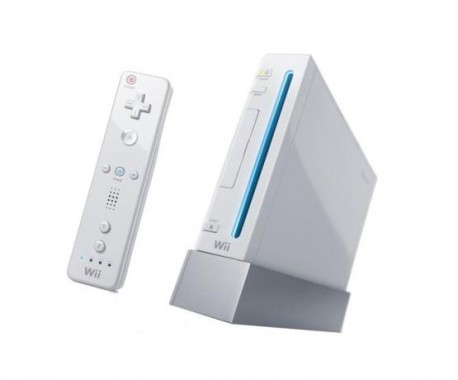
This year, Nintendo will reveal the Wii U in it’s final form at E3. There is no telling what we will see for the successor system, and this reveal is sure to raise the most eyebrows at the event as a whole. Sadly, I keep hearing the same thing at almost every place I visit about the Wii, whether it be an online forum, or a local game store. Yeah, you know what it is. “The Wii was a failure”, “It was just a casual console”, and of course “those high sales mean nothing as Nintendo and the other two are in two separate markets”.
There is so much wrong with all three of those statements, and it’s about time us gamers give a little respect for the motion-controlled console that broke more ground than any other platform this generation. It’s a bold statement, but damn is it true. So let’s go over why the Wii was relevant, what good it did for the industry, and while we’re at it, we can kill that myth that there were no good games to play.
A History Lesson – A Whole New World
Can you believe it’s been almost six years since the Wii was released? Well, back in 2006, the little white box blew up in a big way, launching in the U.S. a month shy of the holiday season with a few nice launch titles in tow. Games such as The Legend of Zelda: Twilight Princess, Red Steel, Excite Truck, and Wii Sports fronted the arrival, but as you all know, the games were not the reason anyone wanted the console early on. It was all about the unique method of control.
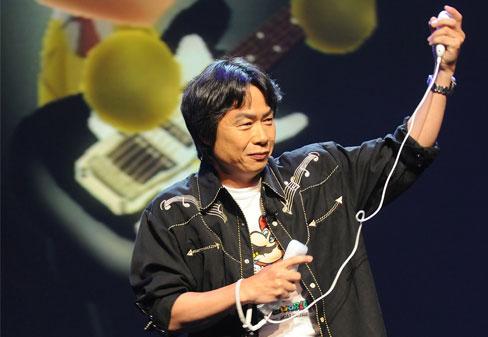
Instead of a standard controller, each unit came with a remote control and a sensor bar for tracking, known of course as the WiiMote. We had seen snippets of motion-based gaming in the past, but this gimmickry was the selling point for the Wii. For years, gamers had picked their controllers up and flicked them as they tossed a Pokeball in Pokemon Stadium or would mimic tossing a football in Madden as a pass was made across the field. The idea behind the Wii was to simply cross that next line and actually have the player’s own gestures matter. The WiiMote was to act as a sword, a bow, a tennis racket, or any tool of choice at the user’s disposal, which created a much more interactive and immersive experience between the player and the world they were put in.
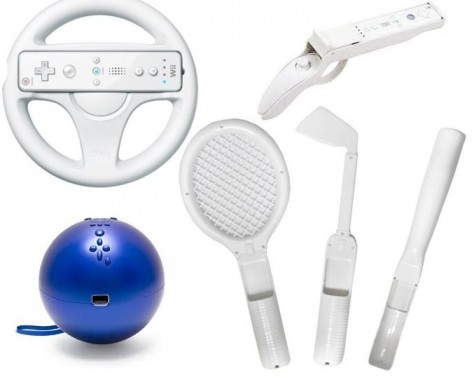
When the Wii hit shelves, a ton of peripherals started to pop up everywhere. Gamers could pop their WiiMote into a piece of plastic shaped as a steering wheel, golf club, fishing rod, or racket to create a more realistic feel for whatever game they were playing. To this day, there are far too many accessories to count for the system and while many of us frown at the clutter now, it was still an awesome extra feature for the controller back then. Remember “Wii would like to Play”? That catchphrase may have sounded laughable, but Nintendo were honest in their campaign as all gimmicks aside, that was what this new technology was all about. A new form of play, delivered by a company who had already bred four generations of gamers.

All of these toys caught the attention of these masses, and those who were never interested in the likes of Mario or Donkey Kong were snagging up the console as a form of cheap family entertainment. This was partly due to the huge advertising campaign that Nintendo launched the platform with, featuring happy families playing with their kids in living rooms as they had a blast boxing or bowling with the lovable Mii characters. Due to the interest of a brand new audience as well as Nintendo’s own loyal fanbase, it was nearly impossible to find a Wii in stores for nearly 2 years after launch, and parents everywhere waited in devastatingly long lines just to get a system for a loved one. WiiMania was in full swing and attacked the world head on, with kids waggling their WiiMotes and nunchucks like crazy and even senior citezens getting in on the act, participating in Wii Bowling Nights to stay active without leaving the safety of their homes.
Let the Backlash Begin
With the Wii catching full steam, Nintendo’s core fanbase stood divided. Twilight Princess was a fine way to kick off the system and capture the hardcore following’s attention, but after a short time, Nintendo’s other casual offerings were just not enough to satisfy the hunger. To make matters worse, third party developers started to publish titles to the masses that were very poor in quality in order to make a quick buck off the unsuspecting soccer moms. You see, back in the Gamecube era, the term “shovelware” wasn’t really a topic. Yeah, we had some flops of licensed titles, but that has always been the norm among all platforms and most gamers grew to accept the shelf fodder as a part of life. These lesser offerings however dominated store shelves in waves on the Wii, with cheap, glitchy party romps, animal sim games ending in “Z”, and a ton of other barely playable games drowning out the gems and causing the console’s library to become a cluttered mess. It didn’t really help the problem that Nintendo were still promoting casual games like Wii Music and Wii Play over their bigger named titles, as that seemed just to complicate the definition of shovelware even more.
Forget about the preference for control, forget about the targeting of the casual market…this was the reason that the Wii’s legitimacy as a “gaming” platform has been questioned to this day.
When companies like Zoo Games, THQ, and Ubisoft are pouring out games that look like this…:
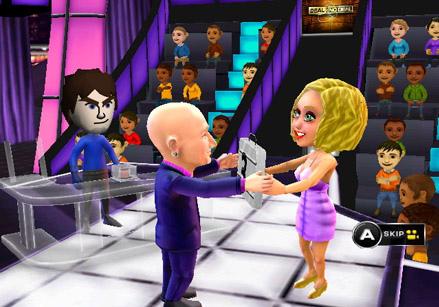
There really wasn’t much use in trying to defend how great the Wii’s selection of titles were, as most critics of the console would just point to the bad and put games that were actually good into the same category. It also didn’t help matters that the Wii couldn’t compare graphically with the Xbox 360 or Playstation 3. Why should anyone pay for a lesser version of Call of Duty when they can get the full experience on another platform? Third party publishers rarely threw their big titles to the Wii due to the lack of power as it was, and when you see that kind of cold shoulder delivered to the company that helped launch so many studios, it’s just sad and disheartening. Eventually, many of those fans who bought the Wii that grew up playing every Mario available and spent their teen years exploring with Link until daylight hit just let their console collect dust, as it was almost an embarrassment to show support to a system that made them feel like the black sheep in the crowd.
A Different Perspective
What you just read was the dark cloud that has loomed over the Nintendo Wii for years now. The Wii’s lifespan is almost up, and it’s time the console was shown some respect for what it did bring to the table.
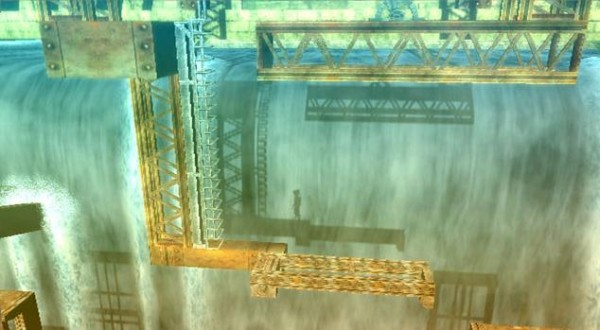
First off, let’s take a moment to talk about those gems I spoke of earlier. Yes, the Wii has good games. Not just a handful, but a load of charming and simply wonderful titles are on the platform, and deserve their moment in the sun. Games like Little King’s Story, The “Trauma” series, and Hudson’s beautiful swan song Lost in Shadow are all fulfilling and endearing titles that could be played by a gamer of any age, but speak in volumes when it comes to delivering emotion and entertainment to the older crowd who crave something unique. On the flipside, we have seen some great shooters delivered by third parties as well, such as the Conduit and it’s sequel (which both still maintain a nice little online community), the Resident Evil Chronicles titles as well as the WiiMote enabled ports of the Zero, 1, and 4, and of course Goldeneye 007. I could go on and on throughout every genre and handpick a good number of worthy games that were not published by Nintendo themselves, but I think you get the general idea.
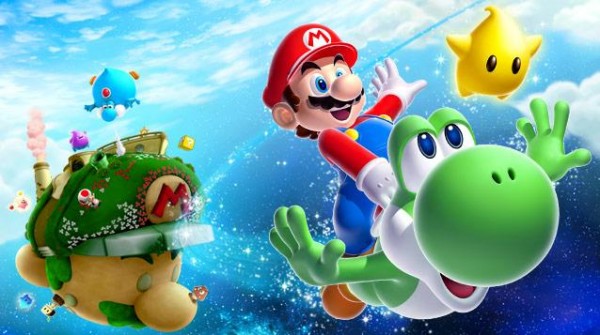
Nintendo themselves deserve almost all of the credit though, as even though we didn’t get to see Assassin’s Creed, Battlefield, or Mass Effect due to the near major third party abandonment, they kept on trying to please not only their new fans, but the core audience that felt out of place playing the system. Look at what Mario has done this generation on the Wii, for starters. Super Mario Galaxy 1 & 2 and New Super Mario Bros. Wii (as well as all of the spin-offs) yet again revived the aging mascot and kept him relevant throughout the onslaught of new IPs offered by other publishers on other consoles. Link also fared well with Skyward Sword, Donkey Kong Country got a revival, and even Samus seen a good amount of love (love it or hate it) with Metroid Prime 3 and Other M. Kirby’s duo of releases remain as two of my personal favorites this generation as a whole as well.
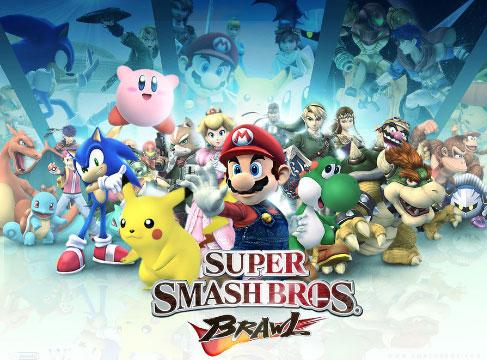
Speaking of HAL, you can’t talk about the Wii without mentioning one of the best marketed and most hyped titles of all time, Super Smash Bros. Brawl. I know I sound like I may be rambling here and the Nintendo fanboys who are reading this are probably naming off all of those other first-party releases I didn’t mention, but naming them all is not the point I’m trying to make. My point is that the Wii has now sold nearly 100 million (yes, million) units worldwide, and it’s all due to Nintendo. There was no system selling version of Call of Duty on the Wii or a God of War/Halo caliber release. Let’s face it, the online play definitely was not a factor, either.
Nintendo brought about some fantastic ideas that can been seen across all platforms and perfected it to their liking early on, while maintaining a library that is still worth investing in. The Playstation Move and Kinect are admirable by their own merits, but unlike Nintendo, Sony and Microsoft are still trying to hit gold with their motion based hardware for their consoles, and it’s debatable that either party has truly incorporated it as well as the Wii did. The Wii deserves respect not because it had some enjoyable software, but because it managed to take everything we love about the company and deliver it to an entire new market. There is a lot of talk about Nintendo turning their backs on the fans for a good portion of the past 6 years or so, but looking back, that argument is honestly hard to make. Shovelware and cramped arms aside, Nintendo built yet another system that is sure to have a true legacy behind it and enjoyed for many more years to come. Now go, Play.

